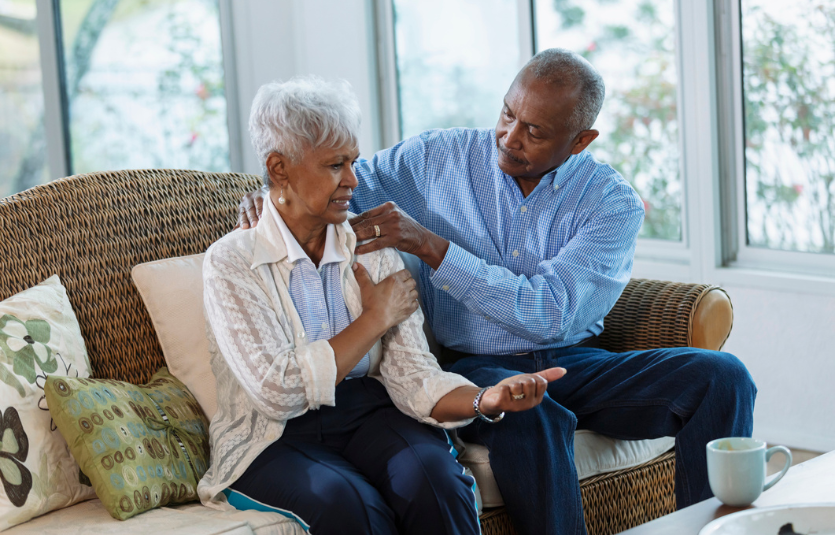Choosing the Right Care: Emergency Room, Primary Care, or Urgent Care?
Understanding what problems should be seen in an emergency room versus, primary care office or urgent care clinic can be confusing. This guide can help you determine the right place for your care. If you have any questions, Riverside Nurse is available 24 hours a day at 1-800-675-6368.
For less critical injuries or illnesses, seeing your primary care provider or going to an urgent care clinic can mean you will be seen faster, and your out-of-pocket costs will be significantly lower than for hospital emergency room visit.
If you have a problem that could be managed by a primary care office but do not have a primary care provider, we encourage you to visit one of our urgent care locations or find a Riverside primary care provider. To make an appointment with a Riverside primary care provider call 757-534-5352 from the Peninsula, Middle Peninsula or Williamsburg or 757-302-2835 from the Eastern Shore.

When to Call 911
- Life-threatening conditions such as a stroke, or heart attack (see symptoms below)
- If someone has stopped breathing, is choking or has no pulse, the 911 operator can assist with life-saving procedures such as the Heimlich maneuver or Cardiopulmonary Resuscitation CPR)
- If moving an injured person could cause additional harm, such as after a car accident or serious fall, or anytime there is a suspected injury to the spine or neck.
Problems That Should Be Seen in the Emergency Room:
Heart Attack
Any heart attack symptoms including:
- Chest pain or sensation of crushing pressure on the chest
- Shortness of breath
- Pain or discomfort in the jaw, neck, back, arm or shoulder
- Onset of lightheadedness, nausea or vomiting, heavy sweating or breaking out in a cold sweat, sometimes with an impending sense of dread (more common in women)
Stroke
Any signs or symptoms of stroke, including:
- Balance issues that come on suddenly
- Eye problems such as sudden loss of vision in one or both eyes
- Facial drooping or asymmetry
- Arm or leg weakness on one side
- Speech problems such as sudden onset of slurred speech, inability to sleep, difficulty finding the right words or difficulty understanding words
- Terrible headache or crushing pain in the head
Other emergencies
- Trouble breathing, shortness of breath or choking
- Head injury, suspected concussion or loss of consciousness
- Uncontrollable bleeding
- Deep lacerations (cuts), open wounds or severe burns
- Dislocated joints or crushed bones or broken bones that come through the skin
- Severe injuries to the face, eyes or body that could result in immediate or permanent damage
- Severe abdominal pain
- Coughing up or throwing up blood
- Seizures
- Heavy vaginal bleeding while pregnant
- Severe allergic reactions with trouble breathing, swelling or hives, or anytime an Epipen is used
- Thoughts of harming self or others (can also call 988 for the Suicide and Crisis Lifeline or call 1-800-273-8255)
- Suspected poisoning or overdose of drugs or alcohol. (Can also call the Poison Control Center at 1-800-222-1222)
- Heatstroke or severe dehydration in adults with dizziness or confusion, especially if not producing urine or sweat
- Patient has been physically assaulted, sexually assaulted or raped
- A child with a fever who is very sleepy or difficult to wake up
- A child showing signs of dehydration (no tears, dry mouth, no urine and no sweat), especially if there is also nausea and vomiting or diarrhea
Problems That Can Be Treated by Primary Care or Urgent Care:
- Small cuts or lacerations that may need a few stitches
- Sprains, strains or simple broken bones (not all primary care offices have X-rays so call your provider’s office to see if urgent care is more appropriate)
- Back pain or back muscle spasms
- Pain while urinating or suspected urinary tract infection (UTI)
- Minor headaches
- Mild asthma
- Fevers over 100°F (adults) that won’t go down with medication
- Illness such as flu, sore throat, sinus infection, pink eye, bronchitis and earache
- Foreign objects stuck in the nose or ears
- Assistance with removing foreign bodies from skin, such as large splinters, thorns or fishhooks, or with treatment after puncture wounds, such as tetanus shots or treatment for a possible infection
- Rashes and minor burns
- Animal bites or stings that have not caused a life-threatening reaction
- High blood pressure
- Vaccines, shots or lab tests
Emergency contraception after accidental unprotected sex (example – condom broke)
